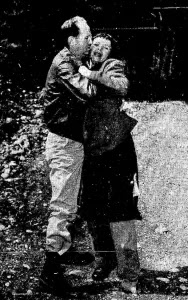I added "The Great Siege" tag early in the life of this blog to organise the idea that Germany's strategic campaign against the British Empire was effectively a siege of Great Britain with consequences extending well beyond the end of the war. One could say, I thought to myself in 2013, that it was ultimately a success, inasmuch as the British Empire no longer exists. That is because, by situating the Battle of Britain and the Battle of the Atlantic into an overarching effort including mining and, most easily missed, the V-weapon campaign, one could extend the long range consequences of the campaign well beyond the end of the war, and, in particular, say that the attrition of British housing stocks during the war was an important factor in What Came Next.
Well, this is a travel installment, with me currently struggling to touchtype with reasonable speed on a very nice ASUS laptop with a keyboard that is just too small for my fat fingers, which doesn't encourage me to be loquacious, but which on the other hand leaves me thirsty to share pointless vaction pictures and experiences.

The overall idea with which I started this tag was, I now see, hopelessly naive, which is why I have decided that the right time to call an end to the Great Siege is with
The Economist's disgraceful surrender to permanent deficit financing of the British economy with the
1953 budget introduced by RAB Butler for the Churchill government, because what's more important, "economy" or higher interest rates, lower taxes, and a tacit turn away from full employment? Without either agreeing or disagreeing with the traditional Liberal "peace, retrenchment, and reform," so blatantly giving the game away is the 1953 equivalent of the French "rearming in 1938" to the tune of "What about the rentier?" It's capitulation, is what it is. Here's the keys to the city, Herr Grossadmiral, on the sole condition that you let us march out with our
consols shouldered.
The town of
Keremeos lies on the junction of the Similkameen River with Keremeos Creek on Highway 3 and Highway 5C in the south centre of the province, in one of two regions that loves to attach itself to the Okanagan Valley as an extension of BC's "summerland," to borrow the actual name of an Okanagan Valley town between Penticton and Peachland, across the lake from Naramata. Keremeos, like the rest of the "Similkameen" part of the "Okanagan-Similkameen," has no lake suitable for summer fun. It is a farming and crossroads town in the midst of endless orchards and vegetable farms with a good run to Vancouver since the Hope-Princeton opened in 1953, although the housing stock you see in these pictures is earlier than that, dating to a previous era of prosperity based on loading fruit cars onto an extension of the Great Northern Railway. The town has a population of a bit over 1700, which explains why the drugstore in town is open 12--4 on Sundays.

A walking tour of the town might seem very familiar if you have seen Beaverdell, Greenwood, Olalla, Hedley, or similar towns laid out before WWII which have since not enjoyed very much growth. It is a four--to-six blocks by four block street grid, readily walkable, with a solid downtown area with enough vacant space for more businesses if you're in the mood to move and invest, and enough room for far more houses than are there, overwhelmed by the size of their lots, and even a few apartment buildings, mostly comically undersized, as if the builder lacked a certain conviction. Around this core area is an area of new building from the postwar era, where such new houses as have been built over the subsequent eighty years are located, abstracted from the town core in every case, and in that of Keremeos, dramatically overlooking it from an Okanagan bench --meaning that although they are very close to the city physically, you have to drive down to a draw that gives access to the Upper Bench of the Keremeos in the far northeast corner of the town.
Now let's talk about one reason that Clement Attlee was right.








